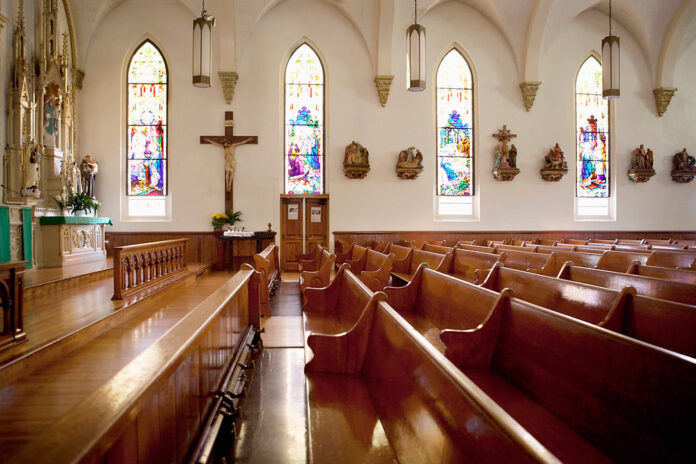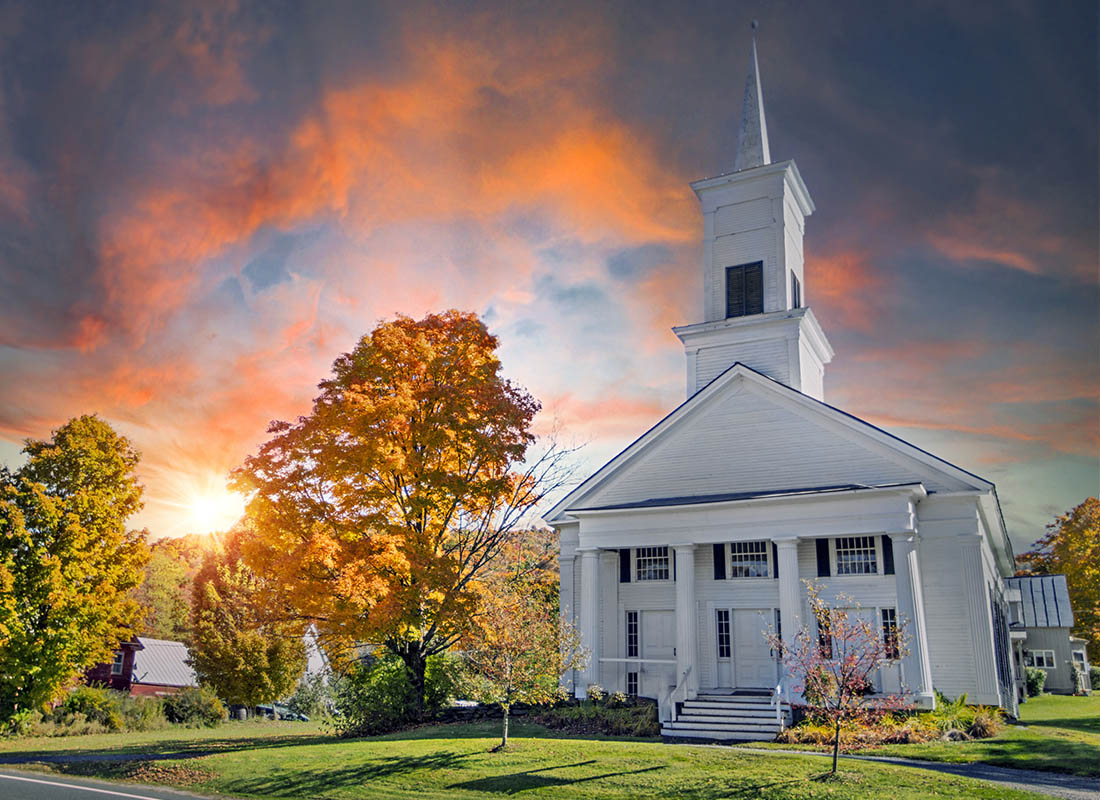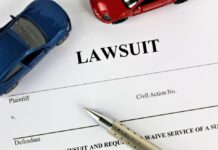As a place of worship and community gathering, a church is an essential institution that requires protection against unforeseen risks.
Whether it’s damage to the property or liability claims, they need adequate insurance coverage to keep their operations running smoothly. In this article, we will discuss the basics of property and liability insurance for churches.
Property Insurance for Churches

Property insurance covers damage or loss to the church building and its contents caused by perils such as fire, theft, and natural disasters. Depending on the policy, it may also include coverage for equipment, furniture, and fixtures, such as sound systems, pews, and stained glass windows.
It is important to note that standard property insurance policies may not be sufficient to cover unique risks faced by churches. For example, if the church is located in an area prone to flooding, the policy may require additional coverage for flood damage. It is also crucial to ensure that the policy covers the full cost of rebuilding it in case of a total loss.
Additionally, churches should consider adding endorsements or riders to their property insurance policy to cover specific risks. For instance, if the church hosts events, they may need additional coverage for property damage caused by event attendees.
Liability Insurance for Churches
Liability insurance protects against claims for bodily injury or property damage that occurs on church premises or as a result of its activities. It covers legal defense costs and any damages awarded by a court or settled out of court.
For instance, if a visitor slips and falls on a wet floor at the church, liability insurance would cover the medical expenses and any other damages resulting from the injury. If a church volunteer accidentally damages a neighbor’s property while performing church-related duties, liability insurance would cover the costs of repair or replacement.
It also covers claims related to libel or slander. If a church staff member makes false statements about someone that causes harm, liability insurance would cover any damages resulting from a lawsuit.
Choosing the Right Coverage for Your Church
When choosing property and liability insurance coverage for churches, it is important to work with an insurance agent who understands the unique needs and risks of churches. An agent can help the church assess its needs and recommend coverage options that offer adequate protection.
It is also crucial to read the policy carefully and understand what is and is not covered. For example, some policies may exclude coverage for damage caused by certain types of natural disasters or for damage caused by criminal activity. The policy should also outline any deductibles or limits on coverage.
Another consideration is the cost of the policy. While it may be tempting to choose the lowest-priced policy, it may not offer adequate protection in case of a loss. It is important to balance the cost of the policy with the level of coverage needed to protect the church’s assets.
In addition to property and liability insurance, there are other types of coverage that they may need to consider. For example, if the church owns vehicles, it may need commercial auto insurance to cover liability and property damage in case of an accident.
Churches that have employees may also need workers’ compensation insurance to cover medical expenses and lost wages in case of a work-related injury or illness. This coverage is required by law in most states.
It is also important for them to review their insurance coverage regularly to ensure that it keeps up with any changes in their operations or risks. For instance, if the church adds a new building or expands its services, the insurance policy may need to be updated to reflect these changes.
Finally, it is essential for churches to take steps to prevent accidents and minimize risk. This includes maintaining the church building and property, training staff and volunteers on safety procedures, and conducting regular inspections to identify and address potential hazards.
Another important aspect of church insurance is protecting against cyber threats. Churches today rely heavily on technology for communication, record-keeping, and financial transactions. As such, they are vulnerable to cyber attacks such as data breaches and ransomware.
Cyber liability insurance can provide coverage for losses resulting from a cyber attack, including costs associated with data restoration, public relations, and legal fees. It can also cover damages resulting from a lawsuit filed by affected individuals or entities.
They should also implement cybersecurity measures to prevent cyber attacks. This includes regularly updating software and operating systems, using strong passwords, encrypting sensitive data, and training staff and volunteers on cybersecurity best practices.
In addition, churches should have a disaster recovery plan in place in case of a cyber attack or other disaster that disrupts their operations. This includes backing up data regularly and having a plan to restore systems and operations quickly in case of a disruption.
By investing in comprehensive insurance coverage and taking steps to prevent accidents, churches can minimize the financial impact of unforeseen events and continue to serve their communities with confidence. With the right insurance coverage and risk management strategies in place, they can focus on their mission and make a positive impact in the lives of those they serve.
Final Thoughts
Property and liability insurance for churches is a vital investment that protects against unforeseen risks. By choosing the right coverage and working with an experienced insurance agent, they can ensure that they are adequately protected and can continue to serve their communities without interruption.
As a church leader or member, it is essential to prioritize the safety and security of the church’s property and those who use it. By investing in comprehensive insurance coverage, churches can protect themselves against the unexpected and focus on their mission of serving their communities.







